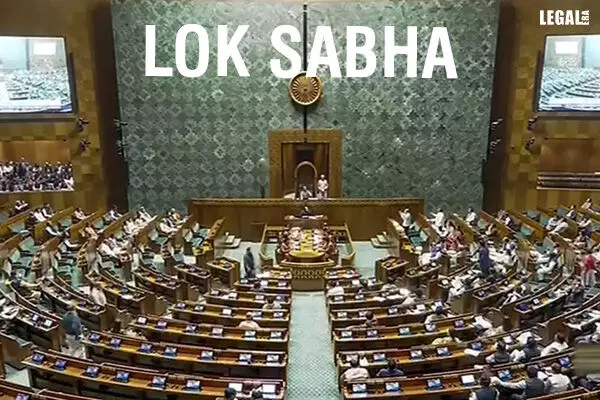- Home
- News
- Articles+
- Aerospace
- Artificial Intelligence
- Agriculture
- Alternate Dispute Resolution
- Arbitration & Mediation
- Banking and Finance
- Bankruptcy
- Book Review
- Bribery & Corruption
- Commercial Litigation
- Competition Law
- Conference Reports
- Consumer Products
- Contract
- Corporate Governance
- Corporate Law
- Covid-19
- Cryptocurrency
- Cybersecurity
- Data Protection
- Defence
- Digital Economy
- E-commerce
- Employment Law
- Energy and Natural Resources
- Entertainment and Sports Law
- Environmental Law
- Environmental, Social, and Governance
- Foreign Direct Investment
- Food and Beverage
- Gaming
- Health Care
- IBC Diaries
- In Focus
- Inclusion & Diversity
- Insurance Law
- Intellectual Property
- International Law
- IP & Tech Era
- Know the Law
- Labour Laws
- Law & Policy and Regulation
- Litigation
- Litigation Funding
- Manufacturing
- Mergers & Acquisitions
- NFTs
- Privacy
- Private Equity
- Project Finance
- Real Estate
- Risk and Compliance
- Student Corner
- Take On Board
- Tax
- Technology Media and Telecom
- Tributes
- Viewpoint
- Zoom In
- Law Firms
- In-House
- Rankings
- E-Magazine
- Legal Era TV
- Events
- Middle East
- Africa
- News
- Articles
- Aerospace
- Artificial Intelligence
- Agriculture
- Alternate Dispute Resolution
- Arbitration & Mediation
- Banking and Finance
- Bankruptcy
- Book Review
- Bribery & Corruption
- Commercial Litigation
- Competition Law
- Conference Reports
- Consumer Products
- Contract
- Corporate Governance
- Corporate Law
- Covid-19
- Cryptocurrency
- Cybersecurity
- Data Protection
- Defence
- Digital Economy
- E-commerce
- Employment Law
- Energy and Natural Resources
- Entertainment and Sports Law
- Environmental Law
- Environmental, Social, and Governance
- Foreign Direct Investment
- Food and Beverage
- Gaming
- Health Care
- IBC Diaries
- In Focus
- Inclusion & Diversity
- Insurance Law
- Intellectual Property
- International Law
- IP & Tech Era
- Know the Law
- Labour Laws
- Law & Policy and Regulation
- Litigation
- Litigation Funding
- Manufacturing
- Mergers & Acquisitions
- NFTs
- Privacy
- Private Equity
- Project Finance
- Real Estate
- Risk and Compliance
- Student Corner
- Take On Board
- Tax
- Technology Media and Telecom
- Tributes
- Viewpoint
- Zoom In
- Law Firms
- In-House
- Rankings
- E-Magazine
- Legal Era TV
- Events
- Middle East
- Africa
CGST Amendment Opens Doors for Experienced Tax Lawyers in GSTAT

CGST Amendment Opens Doors for Experienced Tax Lawyers in GSTAT
Indian Parliament's lower house, Lok Sabha, on 18 December 2023, passed the Central Goods and Services Tax (CGST) (Second Amendment) Bill, 2023, aimed at amending the CGST Act of 2017.
The Central government introduced the CGST (Second Amendment) Bill on December 13, seeking to amend the 2017 law for smoother GST Appellate Tribunal operations.
Acting on Chief Justice of India (CJI) DY Chandrachud’s recommendation relayed through the Supreme Court Registrar, federal Finance Minister Sitharaman proposed the CGST amendment.
CJI Chandrachud raised concerns that specific elements of the GST Appellate Tribunal's service terms conflicted with the principles of the Tribunal Reforms Act.
In an effort to broaden the pool of qualified candidates, the proposed legislation opens up judicial member positions at the Goods and Service Tax Appellate Tribunals (GSTAT) to advocates with at least 10 years of experience.
Until now, the GSTAT's judicial bench was exclusively reserved for seasoned legal professionals, including former High Court judges, qualifying district judges, and Indian Legal Service members with substantial administrative experience (3+ years as Additional Secretary).
To ensure sufficient experience and maturity, the Bill sets a minimum age of 50 for appointments to the Tribunal. Additionally, it grants age extensions for the President (67 to 70 years) and members (65 to 67 years).
To expedite the establishment of the Goods and Service Tax Appellate Tribunals, the Bill, according to the Statement of Objects and Reasons of the Bill, aims to harmonise the CGST Act with the provisions of the Tribunal Reforms Act, 2021, paving the way for immediate administrative procedures.



